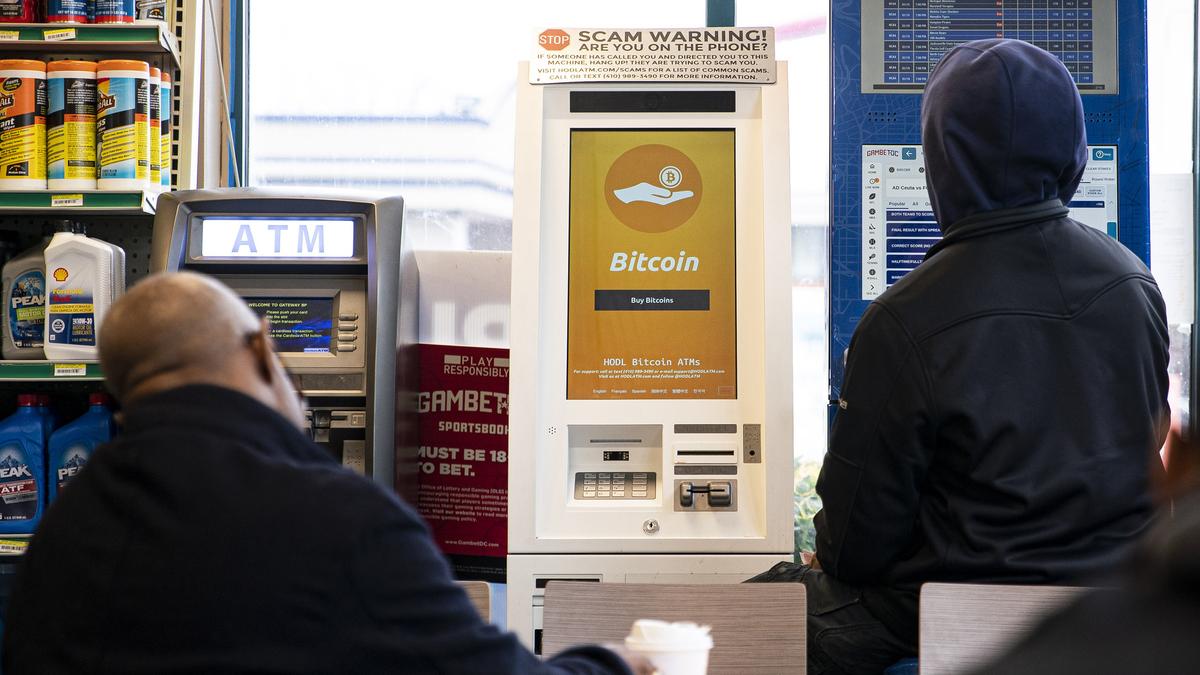
News
October 16, 2025
Crackdown on crypto ATMs to tackle scams and money laundering
Crypto ATMs could be banned under new powers to help the government’s financial crime watchdog crack down on scammers and money laundering.
The future of cryptocurrency ATMs in the country hangs in the balance as authorities consider drastic measures to combat a surge in scams and money laundering facilitated by these machines. Under new powers being explored, a ban on crypto ATMs is on the table, giving the government's financial crime watchdog significantly more leverage in its fight against illicit financial activities.
These stand-alone kiosks, which allow users to buy and sometimes sell cryptocurrencies like Bitcoin using cash or debit cards, have become increasingly popular in recent years. However, their anonymity and lack of stringent regulation have also made them a haven for criminals seeking to launder money obtained through illegal means or to facilitate scams targeting vulnerable individuals.
The proposed ban is part of a broader effort to tighten regulatory oversight of the cryptocurrency industry and close loopholes that criminals are exploiting. While proponents of crypto ATMs argue that they provide a convenient and accessible way for people to participate in the digital economy, law enforcement agencies have expressed growing concern over their role in enabling financial crime.
The financial crime watchdog believes that the anonymity offered by crypto ATMs makes it difficult to track transactions and identify individuals involved in illicit activities. This lack of transparency poses a significant challenge to investigators trying to trace the flow of funds linked to scams, drug trafficking, and other illegal enterprises.
If implemented, the ban on crypto ATMs would represent a significant escalation in the government's efforts to combat financial crime. While it might inconvenience legitimate users of these machines, authorities argue that the potential benefits in terms of preventing scams and money laundering outweigh the drawbacks.
The decision to ban or further regulate crypto ATMs is not taken lightly. The government is currently weighing the potential impact on the cryptocurrency industry and considering alternative measures that could achieve the same goals without resorting to a complete ban. These options might include stricter know-your-customer (KYC) requirements for ATM users, enhanced monitoring of transactions, and closer collaboration with ATM operators to identify and report suspicious activity.
Ultimately, the government's priority is to protect citizens from financial crime and ensure the integrity of the financial system. The fate of crypto ATMs will depend on whether authorities believe they can effectively mitigate the risks associated with these machines or whether a complete ban is necessary to achieve their objectives. The coming weeks are crucial as the government evaluates the evidence and decides on the best course of action.
These stand-alone kiosks, which allow users to buy and sometimes sell cryptocurrencies like Bitcoin using cash or debit cards, have become increasingly popular in recent years. However, their anonymity and lack of stringent regulation have also made them a haven for criminals seeking to launder money obtained through illegal means or to facilitate scams targeting vulnerable individuals.
The proposed ban is part of a broader effort to tighten regulatory oversight of the cryptocurrency industry and close loopholes that criminals are exploiting. While proponents of crypto ATMs argue that they provide a convenient and accessible way for people to participate in the digital economy, law enforcement agencies have expressed growing concern over their role in enabling financial crime.
The financial crime watchdog believes that the anonymity offered by crypto ATMs makes it difficult to track transactions and identify individuals involved in illicit activities. This lack of transparency poses a significant challenge to investigators trying to trace the flow of funds linked to scams, drug trafficking, and other illegal enterprises.
If implemented, the ban on crypto ATMs would represent a significant escalation in the government's efforts to combat financial crime. While it might inconvenience legitimate users of these machines, authorities argue that the potential benefits in terms of preventing scams and money laundering outweigh the drawbacks.
The decision to ban or further regulate crypto ATMs is not taken lightly. The government is currently weighing the potential impact on the cryptocurrency industry and considering alternative measures that could achieve the same goals without resorting to a complete ban. These options might include stricter know-your-customer (KYC) requirements for ATM users, enhanced monitoring of transactions, and closer collaboration with ATM operators to identify and report suspicious activity.
Ultimately, the government's priority is to protect citizens from financial crime and ensure the integrity of the financial system. The fate of crypto ATMs will depend on whether authorities believe they can effectively mitigate the risks associated with these machines or whether a complete ban is necessary to achieve their objectives. The coming weeks are crucial as the government evaluates the evidence and decides on the best course of action.
Category:
Business